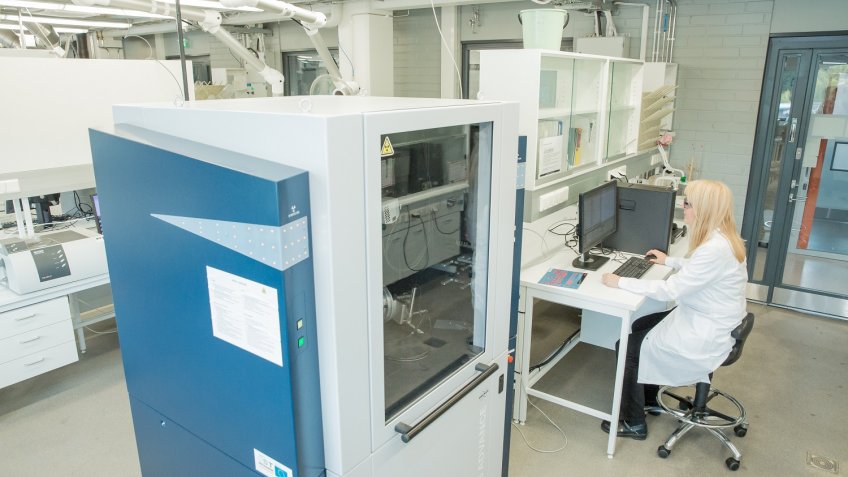
A number of Finnish universities is keen on cooperating with higher education institutions of St. Petersburg. The proximity of Saint-Petersburg and partner universities is not the only reason, but this decision has been also heavily influenced by the fact the International Competence Centre for Mining-Engineering Education under the auspices of UNESCO was established here, in Saint-Petersburg, at the Mining University.
A month ago, an agreement on scientific-technical cooperation between the International Competence Centre for Mining-Engineering Education and LUT University was signed. Upon that, LUT University has become the key partner university in Finland for the Competence Centre. In connection with this, main activities of LUT will be focused on improving technologies of waste recycling. The results of the studies are expected to be introduced into production at extracting and processing enterprises all over the world, including Russia and Finland obviously.
According to Juha-Matti Saksa, Rector of LUT ”It took a lot of time before we got finally accepted as a partner university for the Competence Centre. We are in particular grateful to Vladimir Litvinenko, the Chairman of the Board of Governors of the Competence Center, and the UNESCO leaders, for our status of the partner university has been confirmed.”
The Rector of LUT University told that about a quarter of university employees are engaged in the development of a circular economy, and their main area of expertise lies within improving the efficiency of waste and water reclamation. The commissioners are either municipal authorities, who are responsible for waste recycling, or individual companies, as they are interested in recovering valuable materials from the items disposed of to landfill. It turns out that extracting those components is often cheaper than buying new raw materials.
In Finland, over 90% of waste is recycled and it either comes back in a production cycle or ends up being reused as a source of energy. A mere example of a careful attitude to the environment is the use of reverse vending machines for collecting bottles and cans, which is actually a profitable activity in itself. In Finland, these machines may be found at nearly every local supermarket. The situation in Russia is almost exactly the opposite. Only 10% of waste gets recycled here, whereas the rest is dumped into landfills.
As Jari Hämäläinen, Vice-Rector for Research at LUT, notes ”This is a very important step for us. First of all, we are hoping there will be further development and establishment of an international network of partnering universities under the Competence Centre. We believe it will allow us to create an effective model of scientific cooperation between the universities from all over the world. Secondly, in the past we were working closely with higher education institutions from multiple Russian cities, but now we have decided to focus on interaction with our colleagues from Saint-Petersburg - most notably, with the Mining University. The reason behind our decision is not the proximity of St. Petersburg, although it is important as well, but rather the fact that the Mining University, as well as the Competence Centre established on the base of it, is aiming at achieving real results. In other words, there is an actual work ahead of us. It is not as if we were only talking about cooperation.”
According to Jari Hämäläinen, a gradual increase in the share of recycled household waste will not only improve the environmental situation in Russia but also lead to the creation of new business opportunities. That is exactly how it worked in Finland. It took many years for the local authorities to teach people how to separate waste, but these days waste sorting is basically one of the core principles of the processing industry on the whole. As an example, electronic waste, which is indeed sorted separately from other types of waste, provides not only gold and copper, but highly demanded rare-earth elements may be extracted from e-waste as well.
Liisa Puro, Doctor of Engineering, Analysis Engineer at LUT, is involved in the research in the field of physicochemical properties of materials, and part of her work is related to conducting numerous trials.
As noted by her, ”One of the most demanded areas is the processing of neodymium magnets. This way, we extract neodymium; this metal belongs to the group of rare-earth elements. In addition, manufacturing industry has interest in recovering various metals from electronic waste.”
Juha-Matti Saksa, the head of Lappeenranta-Lahti University of Technology, also mentioned that all Finnish universities cooperate with each other to some extent. Altogether, in Finland there are 13 universities (apart from them, there are also 25 so-called universities of applied sciences). LUT-University has been mainly working with Aalto University and Universities of Tampere and Oulu. According to the Rector of LUT, these universities may as well start collaboration with the International Centre of Competence ”if common points of interest are found".






